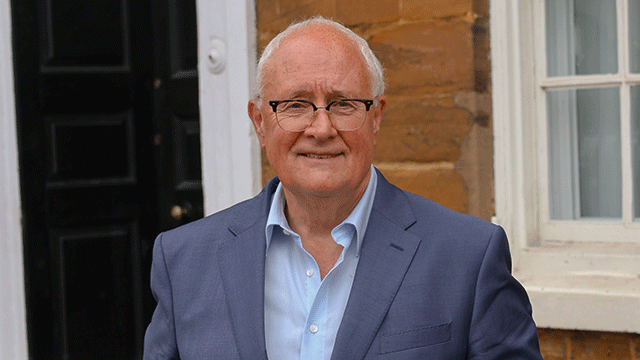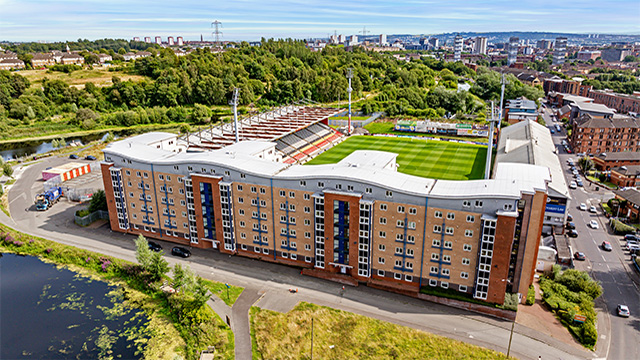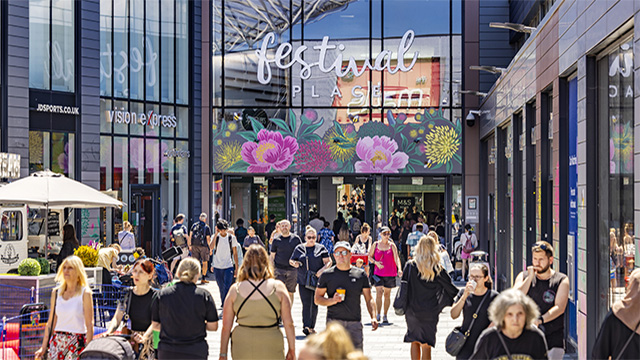Urban regeneration as a force for good
News
by
Sir Michael Lyons
COMMENT At its best, major urban regeneration can revitalise communities, improve public health, boost local economies and set the foundations for future generations to thrive. However, it also carries the risk of overlooking the opportunities of today because of a focus on the long-term.
At ECF, the partnership between Homes England, Legal & General and Muse, we understand that to deliver the best of urban regeneration, we must focus on aligning the long-term aspirations with existing local strengths and knowledge.
Since ECF was established in 2001 as a bold public-private partnership, we have delivered successful places across the country and built more than 2,150 homes in new neighbourhoods, created spaces for more than 8,000 jobs and generated some £1.2bn in economic value.
COMMENT At its best, major urban regeneration can revitalise communities, improve public health, boost local economies and set the foundations for future generations to thrive. However, it also carries the risk of overlooking the opportunities of today because of a focus on the long-term.
At ECF, the partnership between Homes England, Legal & General and Muse, we understand that to deliver the best of urban regeneration, we must focus on aligning the long-term aspirations with existing local strengths and knowledge.
Since ECF was established in 2001 as a bold public-private partnership, we have delivered successful places across the country and built more than 2,150 homes in new neighbourhoods, created spaces for more than 8,000 jobs and generated some £1.2bn in economic value.
We have brought together three of the country’s leading regeneration and investment organisations to create a “supergroup” which pools the knowledge, resources and experience of each partner.
The power of this approach is that we offer skills, experience and investment muscle to work closely with local stakeholders and investors to offer development at scale and pace while concentrating on great placemaking.
Unlocking power
We believe urban regeneration is a force for good. Backed by our resources and expertise, we work in places that have been left behind by the market to deliver changes which catalyse and unlock further investment.
We understand that to unlock this power requires creating distinctive place that maximise local strengths.
At Manor Road Quarter in Canning Town, E16, we are demonstrating how regeneration can put potential first at every stage of the process. Delivered in partnership with Newham Council, this regeneration is revitalising the local area by providing much-needed new homes, economic opportunities and sustainable public spaces.
But Manor Road Quarter is not just about bricks and mortar; it is about fostering social mobility and equipping local people with the skills and opportunities to thrive. The regeneration has already generated 437 new jobs in the local area, including employment for those previously out of work. Additionally, 38 apprentices and seven graduates have gained hands-on experience, ensuring long-term skills development remains at the heart of regeneration.
Investment in skills and education has been a key focus. More than 40 students have benefited from work experience placements, and three T-Level students have undertaken 45-day industry placements. Partnerships with London Design Engineering UTC and Newvic Sixth Form College are helping to inspire the next generation of construction and built environment professionals.
Beyond employment, Manor Road Quarter is strengthening community connections. The delivery team has committed more than 2,500 staff hours to local initiatives and engaged nearly 3,000 students through 53 school and college events. Collaborations with local organisations such as Catch22 are creating pathways into construction, ensuring local talent is nurtured and retained.
By placing social impact and potential at the forefront, Manor Road Quarter is proving that regeneration can be more than just a long-term physical transformation; it can be a catalyst for economic and social renewal in the near term.
Proposals and potential
Canning Town, alongside places in Salford, Stockport, Bradford, Liverpool, Wakefield and St Helens, is benefiting from urban regeneration because of this approach.
In Wolverhampton, we are seeing the benefits of this approach by working with the community to understand and unlock the long-term potential of the city centre.
Working closely with City of Wolverhampton Council, we are developing major plans for the regeneration of the city centre through the eyes of local residents. At City Centre West, we have been keenly seeking insights and views on how this place-changing regeneration can celebrate the city’s strengths while meeting the challenges this city faces.
By directly linking our emerging proposals with Wolverhampton’s potential, we are bringing forward plans to renew and revitalise a city of great promise for the long-term. This includes up to 1,070 new homes, along with opportunities for leisure, retail, and high-quality public spaces.
In its delivery, we will similarly ensure local people and suppliers are front and centre. By putting potential first, we will ensure local communities enjoy the benefits created by building the neighbourhoods of tomorrow.
This approach also helps to catalyse further renewal which ripples out and across urban centres, boosting economic activity and strengthening tax receipts for local authorities.
We need homes, jobs and offices, and we must work together to meet the urgent needs of the communities in which we work. However, if we address these needs with a focus on unlocking potential we see within communities, we can deliver so much more.
Sir Michael Lyons is chair of ECF











